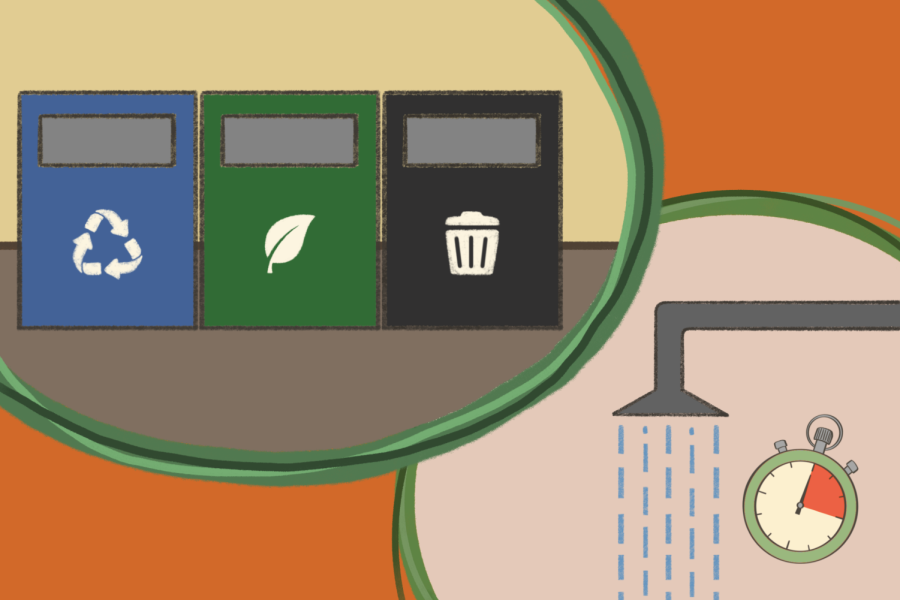Let’s talk about environment
April 19, 2023
According to a poll conducted in 2021, nearly half of Americans don’t think climate change is caused by human activities, and 60% of the U.S. population blames big oil companies for the climate crisis.
That 60% is not entirely wrong. The burning of fossil fuels like oil, gas and coal account for over 75% of global greenhouse gas emissions. However, our dependency on these fossil fuels for electricity, transportation and food is a main reason as to why. We need to evaluate our carbon footprint and reconsider our daily habits to help reduce the impacts of climate change.
Climate change is already here and happening in Austin. During the summer of 2011, Austin had 90 days with temperatures greater than 100 degrees. Extreme weather, like higher temperatures, extended periods of drought and flooding, is also projected for the future of Austin. Its effects are irreversible, but scientists say it may not be too late to prevent future climate change.
Here are some things that all students, whether they live on or off-campus, can choose to incorporate into their daily habits:
1. Prioritize plant-based food items into your meals.
This does not mean you have to cut out meat entirely, but choosing to eat less red meat is especially beneficial to the environment, as beef gives off more than six pounds of carbon dioxide per serving.
“The livestock themselves produce methane as they digest their grass, and so they’re sending a greenhouse gas up into the atmosphere, and then there’s the land use that was changed to make it possible to raise millions of cattle to produce that meat,” said Kenneth Young, a professor of geography and environment.
Studies show that red meat can have up to 100 times the environmental impact of plant-based foods. Eating less meat is good for you, and according to the Environmental Defense, if every American substituted vegetarian foods for one meal a week, the carbon dioxide savings would be the same as taking more than half a million cars off of United States roads.
2. Reduce your electricity use
It’s literally as simple as flipping the light switch. Yes, just turn off your lights and unplug appliances to reduce electricity consumption and prevent further greenhouse emissions. Energy use by these appliances across the nation translates to approximately 50 large power plants’ worth of electricity.
Reducing consumption can save you money, especially if utilities aren’t included in your rent, and it will decrease dependence on nonrenewable resources, which are expected to account for 77% of energy consumption by 2040.
3. Watch your water consumption.
Choosing to take shorter showers when possible is a great way to reduce our carbon footprint. The average shower in the U.S. lasts about eight minutes. If each person reduced their shower time by one minute, it would save a combined 170 billion gallons each year.
Environmental science freshman Krithika Rajesh said collective change could have long-term benefits.
“You don’t have to be one person who does everything, you can be one person who does just a little bit. … If everyone reduced their water consumption, that would go a really, really long way,” Rajesh said.
With a mindset towards collective action, minor changes would become big solutions. Starting with something small, like taking shorter showers, could drastically drop our water utilization.
Maybe you’re not willing to cut out all meat just yet, but adjusting your day-to-day habits by unplugging appliances or reducing your shower time could help to reduce your carbon footprint. You don’t have to do everything, but you can do just a little.
DonJuan is a Plan II and economics freshman from Quanah, TX.
















